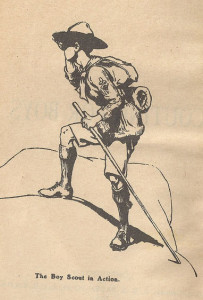Courting public favour: the Boy Scout movement and the accident of internationalism, 1907−29 by Scott Johnston
This article explores how the Boy Scout movement moved from an inward looking and decidedly militaristic programme to one which embraced liberal internationalism following the First World War. It argues that the Boy Scouts’ wholehearted embrace of internationalism was not inevitable; in fact it was a complex and inconsistent transition, and the result of unintentional circumstances. Furthermore, internationalism did not replace but merely supplemented the movement’s older aims of organizational autonomy and the promotion of empire. During the inter-war period, these competing motives informed and strained the Boy Scouts’ interactions with the public and with other internationalist organizations such as the League of Nations and the League of Nations Union
Famine is not the problem: a historical perspective by Cormac Ó Gráda
Thanks to the globalization of relief and increasing global food output, the famines of the twenty-first century (so far), Somalia (civil war) and North Korea (autarky) apart, have been small. Today malnutrition is a much more intractable and pressing problem than famine, even though the proportion of the world’s poor that is malnourished has been declining. Moreover, although the prospects for avoiding famines in peacetime in the short run are good, global warming looms in the medium term. These contrasting signals are not lost on international non-governmental organizations.

